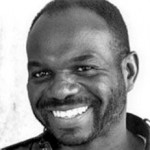Having weathered a decade-long drought of realistic Hollywood portrayals of AIDS in America, the AIDS community is cheering HBO’s new film about HIV, Life Support, which debuts tomorrow (March 10) at 8 pm ET. So are the critics. However, the Brooklyn AIDS Service Organization that inspired the tale, Life Force: Women Fighting AIDS, was preparing to shut down many of its counseling and peer education programs just as HBO was rolling out the red carpet for the film’s New York premiere. Guests included its star and executive producer, Oscar nominee Queen Latifah; another of its producers, Oscar winner Jamie Foxx; and other celebs.
Life Force Executive Director Gwen Carter reports that the loss of a New York City Department of Health grant has forced her to start laying off workers beginning March 15. “I am going to have to start letting our peer educators go,” Carter says. For 18 years, Life Force has recruited and trained HIV positive Brooklyn women, most of them African Americans or Latinas, to head out into the borough’s grittier neighborhoods and spread the HIV word. It also offers testing and support services for people with HIV and their families. “There is a trend toward funding larger organizations that are a one-stop shop, but don’t have people from the community,” says Carter. “We believe that people accept information from others who look and talk like them, and the majority of our educators are from the community and are HIV positive.”
The movie’s writer and director, Nelson George, based the plot on the life of his HIV positive sister, Andrea Williams, who does outreach for Life Force. The film ends with a shot of Williams herself walking the streets of Brooklyn as a voiceover states that the lady who lent her life story to the film is still out in the streets, educating people and handing out condoms. But for how much longer? “If Life Force closes its doors, the black community will be missing a face on AIDS awareness,” says comedian Tony Rock, who plays an HIV positive man in the film. “And people seem to think that if something isn’t right in their face, it doesn’t affect them.”
With all this high profile publicity, can’t the organization get funds elsewhere? Susan Nowak, a spokesperson for HBO, says, “Our goal is to educate people about the issues, not to fund-raise. We could give them millions of dollars but tomorrow they would still be in the same situation.” Actually, it would take $193,000, the amount the organization lost in city funding, to get Life Force through to the end of the year. (Carter says Queen Latifah and her charitable foundation have given the group $5,000; HBO gave it $3,500 in March of 2006.) For now, the group has enough funds from the Centers for Disease Control—slightly less than the year before—to cover testing and other basic services, but not counseling or outreach. “It’s not about if you do the work well, but if your proposal is well written,” Carter says of the grant approval process. “Smaller community-based organizations don’t have time to write the proposals and can’t pay people to do it.”
Indeed, Rachel Miller, senior deputy director of HIV Care Services at Medical and Health Research Association, which reviews grant proposals for the NYC Department of Health, says the grant decision was based on a roughly 20-page proposal answering multiple highly nuanced questions. “Sometimes the grant writing is not that strong,” she says, adding that Life Force failed to earn the 70 points necessary for a contract renewal. “We liked Life Force,” she says. “But this is what happens during the re-bid of government funding. You win some and you lose some.” She says this year NYC has decided to give fewer grants of larger sums, with the number available dropping from 70 to 39. In addition, she says, there is also less money available for AIDS organizations overall than there has been in the past.
Meanwhile, Carter reports, the peer educators are meeting and strategizing to find ways to keep putting their prevention message out in the streets. One free condom at a time.
Life Force May No Longer Be With You






Comments
Comments